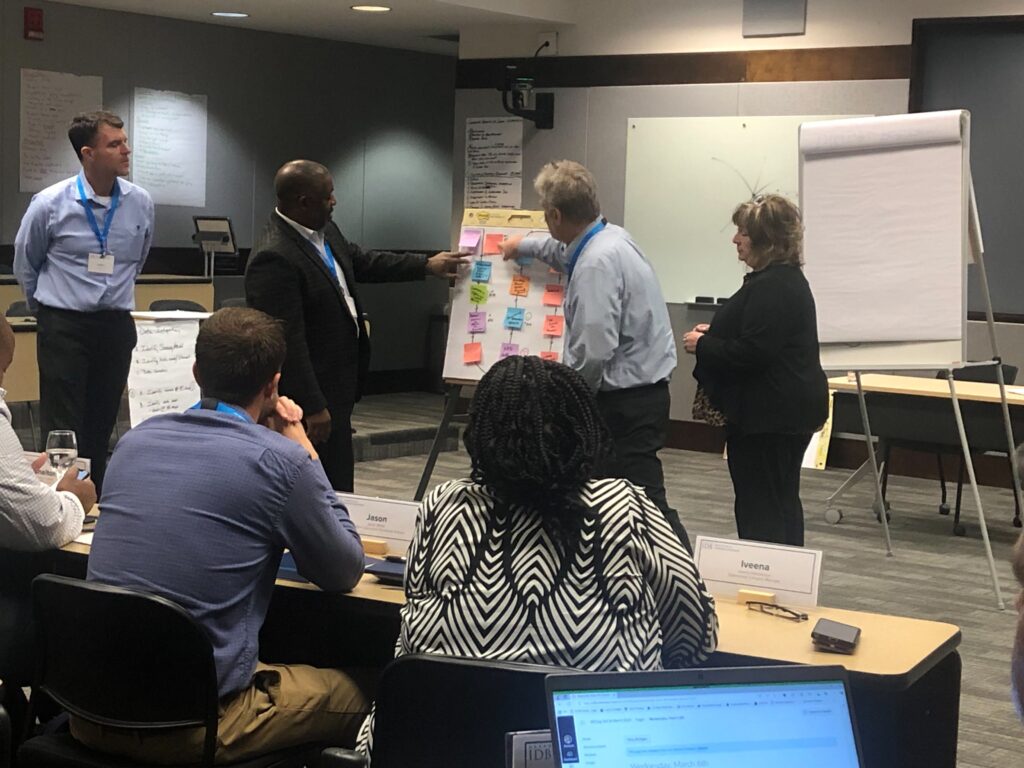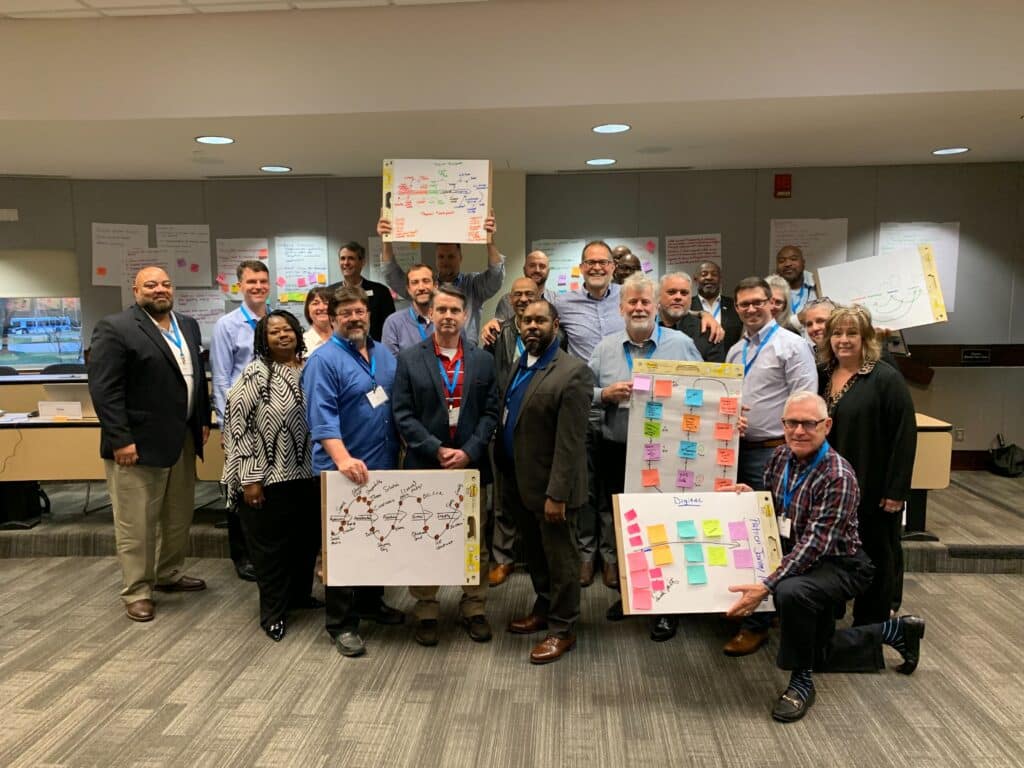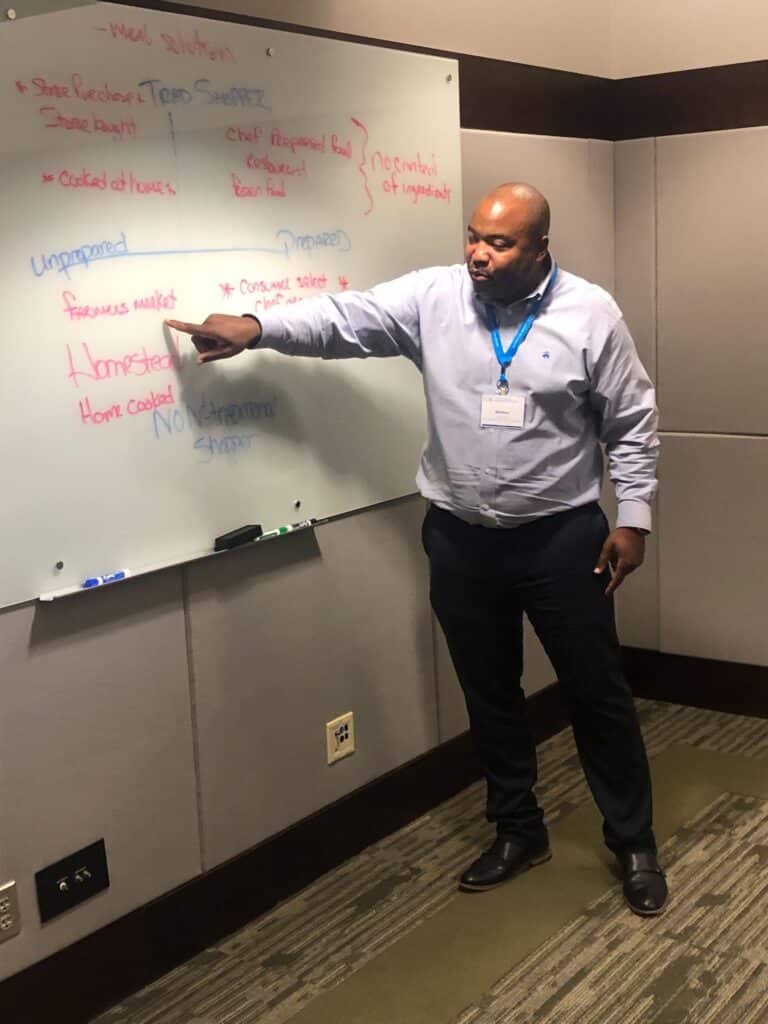DeCA Invests in its People to Transform DoD’s Grocery Chain
by Jennings Dixon, IDB Program Manager
In his 2021 “Message to the Force”, Secretary of Defense Lloyd Austin emphasized the critical importance of prioritizing defense, people, and teamwork to effectively compete with near-peer adversaries. The key to integrated deterrence is a credible and fully equipped military capable of swiftly adapting to a rapidly changing global environment. Furthermore, we must broaden our scope of the entire force to include the people and organizations who support men and women in uniform and their families, such as the Defense Commissary Agency (DeCA).
DeCA operates 235 commissaries on military installations worldwide. Over the course of 12 consecutive years, DeCA experienced a 5% decline in sales each year. Starting in 2022 (October – September Fiscal Year) DeCA saw a notable turnaround in revenue (up 3%). In fiscal 2023, the agency achieved a 9.6% increase in sales.
Following his recent appointment as the DeCA Director and CEO, Mr. John Hall published a strategic plan aimed at further boosting DeCA’s annual sales even further to $8 billion in five years with the purpose of generating $1.1 billion in savings. Dubbed “Eight Building Blocks for $8B” this ambitious strategy that paves the way for DeCA to reach more eligible shoppers by focusing on cost, expanding options, and improving the retail experience. Mr. Hall recognizes that grocery is inherently “a people business,” and that proper investment in his people is the key to delivering on the eight building blocks and to being preferred grocery of choice for their eligible patrons.

In March, the Institute for Defense and Business in Chapel Hill, North Carolina hosted senior DeCA leaders in a strategic planning offsite. Drawing from the very successful Industry Broadening Based Logistics (IB2LOG) Program, the IDB tailored the one-week offsite’s educational outcomes to align with DeCA’s unique mission and Mr. Hall’s intent and strategic objectives. The program brought together a cohort of twenty-two DeCA corporate staff leaders and director-level professionals, such as the Chief of Staff, Sales Director, and Chief Financial Officer. This special educational effort fostered collaboration and peer-to-peer exchanges, problem analysis evaluation, and top-tier executive development.
Throughout the one-week offsite, DeCA leaders engaged with a diverse array of academic professionals and private industry experts. One of the unique aspects that sets IDB apart from others in the education and professional development space realm is its unique capacity, as a 501c3 nonprofit, to source specialized faculty from esteemed institutions throughout North Carolina, including Wake Forest University and the University of North Carolina at Chapel Hill. These faculty members were chosen because their academic expertise best matched the specific educational outcomes co-developed by DeCA and the IDB. Session topics covered a wide range including simplifying complexities through simple rules, leveraging analytics in retail, enhancing, and improving talent management and retention, the patron’s experience, and fostering innovation. During these sessions, DeCA participants engaged in collaborative small breakout group activities that let them use newly acquired tools such as patron journey mapping and investment triage.
The framework for these small groups was based around specific problem statements drafted before the program. These problem statements reflected areas of importance outlined in the Eight Building Blocks, and they shaped the presentations at the end of the week. Examples of problem statement topics include testing and utilizing new AI technologies, data integration and fluency, growth acceleration, modernizing commissaries, and personnel talent management.
Outside of the academic sessions, DeCA leaders also had the opportunity to hear from subject matter experts (SMEs) executives from the grocery industry and other transformative organizations. In these discussions, DeCA participants gained valuable insights into private industry best practices, challenging DeCA participants to consider their applicability within their organization. Mr. Fred Morganthall, former Executive Vice President – Operations of Kroger and President/Chief Operating Officer of Harris Teeter, generously shared his time and expertise. He spoke about his experiences in the grocery industry and emphasized the significance of starting small and excelling in a single area, underscoring the importance of leveraging best practices from private industry by recognizing that the role they play is integral to DeCA’s and other government agencies’ success.
At the end of the week, DeCA leaders delivered comprehensive presentations to Mr. Hall and his Chief Transformation Officer, Mr. Jim Flannery, showcasing the tools, ideas, and solutions gleaned from diverse sessions. These presentations underscored the breadth of knowledge gained from both academic sessions and discussions with SME leaders. As Mr. Hall observed, the depths of insights shared truly reflect the DeCA commitment to transformative growth.

The week concluded with an impassioned call to action by Mr. Hall urging his leaders to leverage what they learned to challenge themselves and to do things in a different way. “Push boundaries and embrace innovation. This customized and tailored educational experience delivers value that leaders can use immediately upon returning to their organization. We believe that this is exactly what Secretary Austin has in mind when he discusses investing in our people. It is because of this investment in leader development of their people that the DeCA team will reach their goal to be the grocery provider of choice for their eligible patrons and deliver a vital benefit exclusively for the military community and their family members.”


